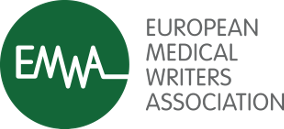Healthy Medical Writing: Taking Our Own Health and Wellbeing Advice.
Is any single person’s health more important than another’s?
Of course, as medical writers, our answer to this question is likely to be a strong ‘of course not!’ After all, our livelihoods revolve around the health of others. We would never wish to rank people’s physical or mental health needs as more or less deserving of care.
However, one issue can sometimes be overlooked by medical writers, healthcare organisations and even the general population: our own, personal wellbeing.
Prioritising Others
5 days a week, medical writers produce documents, advise pharmaceutical companies or interact with patient groups, all with the ultimate aim of improving other people’s lives. However, in a typical 40-hour working week, it can be all too easy to neglect our own health and wellbeing. This can be particularly true if you’re driven by a desire to help others, as medical writers are likely to be.
How often do we write about the importance of good health practices? How often do we act on them ourselves?
Healthy Medical Writing
Frequent fliers will often hear: “Put on your own oxygen mask before assisting others.” As medical writers, we should be very familiar with potential limits of our bodies and minds. We should already know how these issues, such as illness or stress, may stop us from doing the very best job we can, for ourselves and for others. This is why ‘Healthy Medical Writing’ is so important.
‘Healthy Medical Writing’ is a term to describe prioritising the personal needs of medical writers.
In 2015/16 stress accounted for over 40% of all UK working days lost due to ill health. Stress is even more common in public service industries, including healthcare. As such, prioritising yourself is not only key for personal, employee wellbeing and quality of work, but also business finances. The UK government even has a tool to measure the costs of poor employee health to organisations; low employee wellbeing can lead to large productivity losses for individuals and companies alike.
Workplace Wellbeing
Unhealthy workplace practices can be easy for a medical writer to fall into, particularly before tight deadlines or with an excessive workload:
-
Are you struggling to set boundaries between work and non-work times?
-
Do you work far longer than your salaried hours?
-
Has it become more difficult to stay focused or organised?
In the short term, these situations are unlikely to cause a problem. Indeed, many people thrive in fast-paced, high pressure environments where this extra effort makes the work all the more rewarding. However, if stress becomes a regular occurrence, perhaps it’s time to shift more focus onto the wellbeing of ourselves, our colleagues and our employees.
To produce the best work and help the most people, medical writers must first listen to the health advice we so often help publish.
Personal Wellbeing
It has been argued that happiness is a key driver of productivity. By focusing on health and wellbeing, medical writers and their employers can both reduce stress and improve the quality of work. The mental health charity Mind’s Five Ways to Wellbeing contains excellent workplace wellbeing suggestions, such as:
- Take regular breaks – ideally outside
- Encourage openness when discussing health and wellbeing
- Keep healthy snacks and water at your desk
Healthy Medical Writing can and should be promoted by both employers and employees
Organisational Wellbeing
There are already many excellent workplace health and wellbeing initiatives. Some are as simple as providing free healthy food in the office kitchen, implementing flexible working hours or encouraging staff to take mental health sick days when they’re needed.
National and international initiatives are also available, such as Mental Health First Aid training, which is now available in over 24 countries. These are courses for individuals and organisations which “teach people to spot the symptoms of mental health issues, offer initial help and guide a person towards support.” Book a UK one now!
If you want to be a better medical writer – start by prioritising your own health.
If you’re interested in learning more, there is an ever-growing body of published literature available on stress, wellbeing and mental health in the workplace, such as this 2015 review of workplace mental health interventions. Or, if you prefer something more hands-on, get started and prioritise your own Healthy Medical Writing - take a 5-minute break. Right now!
Aimée Hall

